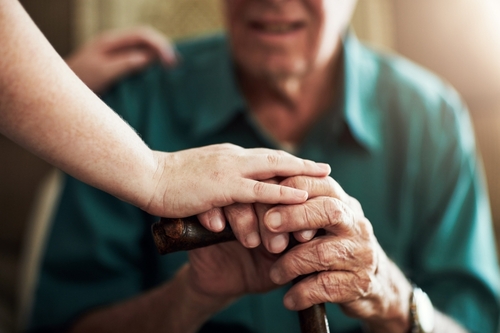
Nursing home abuse can profoundly impact the mental health of its victims, leading to conditions such as anxiety, depression, and even post-traumatic stress disorder (PTSD). Each of these conditions can severely affect a resident’s quality of life. If you have noticed your loved one’s mental health is suffering and you believe abuse is to blame, strongly consider contacting an attorney.
Abuse Can Give Nursing Home Residents Intense Anxiety
Anxiety often manifests in nursing home abuse survivors as a constant state of worry or fear. Victims may feel threatened in their environment, leading to an overwhelming sense of dread. This anxiety can stem from experiences of neglect, emotional abuse, or witnessing violence against others. For many residents, even simple daily activities can trigger panic attacks or heightened stress levels.
As a family member of someone in a nursing home, it is crucial for families to recognize signs of anxiety in their loved ones, which may include restlessness, irritability, or social withdrawal. A skilled lawyer can help by connecting these symptoms to the abuse experienced, which in turn builds a stronger case and higher probability of a favorable outcome for your loved one.
Nursing Home Abuse Survivors May Become Severely Depressed
Depression is another common consequence of nursing home abuse. Victims may feel a deep sense of hopelessness in their situation and a profound loss of interest in activities they once enjoyed. These feelings can be made worse if the victim feels isolated, especially if their abuse goes unrecognized by staff or family members.
Symptoms of depression in elderly patients may include changes in appetite, sleep disturbances, and increased feelings of sadness. Depression can also complicate recovery, leading to worse physical health. Legal proceedings can help secure funds for therapy, medications, and support services to address these needs.
The Lingering Effects of Trauma May Present as PTSD
PTSD is a serious mental health condition that can arise after experiencing a traumatic event, such as abuse in a nursing home. Victims may relive the traumatic experience through flashbacks or nightmares, leading to considerable distress and avoidance of situations that remind them of the trauma.
PTSD can manifest itself through emotional numbness, severe anxiety, and even aggression. For nursing home residents, the triggers may include routine activities or interactions with staff. Recognizing the signs of PTSD and addressing them through therapeutic support is vital for recovery.
Contact a Peoria, IL Nursing Home Abuse Attorney
Anxiety, depression, and PTSD are significant mental health issues faced by victims of nursing home abuse. Recognizing these conditions and advocating for adequate treatment not only supports healing but also empowers families to fight for justice. If your loved one’s mental health is suffering because of abuse, contact our Peoria County, IL nursing home abuse lawyers with Nursing Home Injury Center. Call 309-524-6900 for a free consultation.



